


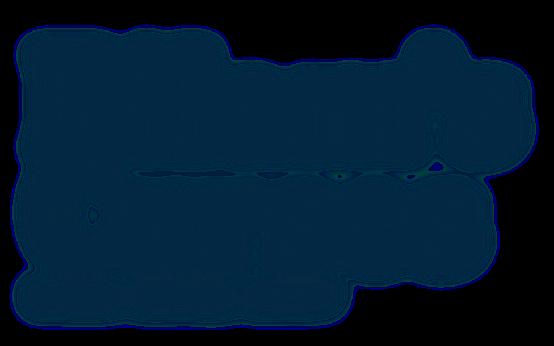






7 Torah Perspectives on God’s Providence Post 10/7 & the Iran War
RABBI AARON ZIMMER
RABBI REUVEN MANN
RABBI MOSHE BEN-CHAIM

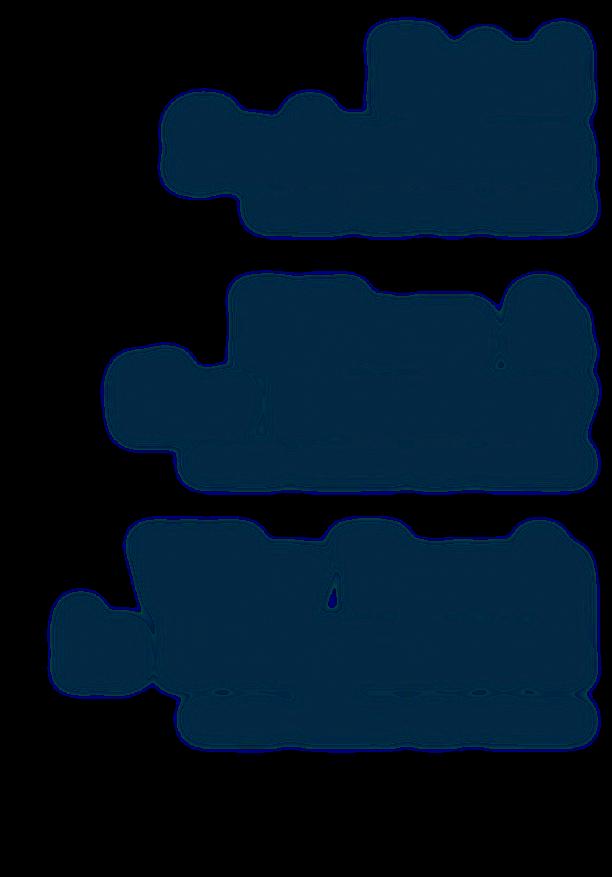
RABBI MOSHE BEN-CHAIM

Just click any icon in







THE JOURNAL ON TORAH THOUGHT
| Please send letters and questions to: Comment@Mesora.org |
RABBI ISRAEL CHAIT
Man cannot alter reality with words. What did Bilam do?
RABBI MOSHE BEN-CHAIM
Conclusion of last week’s essay on death and immortality
RABBI AARON ZIMMER
A study in God’s providence post 10/7 and the Iran War
RABBI REUVEN MANN Bilam’s schemes and the Jews’ sin
RABBI MOSHE BEN-CHAIM
Donkey’s don’t talk, or see angels. The psychological lesson of this cryptic conflict.


RABBI ISRAEL CHAIT
WRITTEN BY A STUDENT
pon studying the events of Balak’s hiring Bilam we reach the inescapable conclusion that Balak was truly awed by Bilam’s powers. He relentlessly attempts to hire Bilam to curse the Children of Israel. It also seems apparent that God did not want Bilam to curse the Children of Israel as he placed many impediments in this attempted mission. God ultimately converts Bilam’s curse into a blessing.
This entire incident raises many disturbing questions. Why is this story highlighted, throughout the generations many people have cursed us? Furthermore, why is God concerned with Bilam’s curse? It seems that if Bilam uttered his curse it would have been dangerous, as though it could influence the rova olam?
In order to resolve this difficulty we must analyze the personality of Bilam to appreciate the threat that he posed. Chazal tell us that Bilam possessed great genius and excellent political acumen. He was the advisor that counseled Pharoh that all Israelite male children should be thrown into the river. He had the political foresight to appreciate that every political movement requires a leader at its forefront.
The Gemara states that Bilam possessed great powers of perception. However, he was also very devious. When he saw a person was in a precarious situation, albeit political or economical, he would curse that person. The individual’s ultimate downfall was attributed to Bilam’s ostensible supernatural powers. Bilam was a machiavellian type of personality, a great political genius and adviser to kings. He counseled his clients by exposing their enemy’s political weakness. We can therefore appreciate the
Gemara in Brachos 7a, which tells us that Bilam knew the time when God was angry with Klal Yisroel. He was capable of determining what Bnai Yisroel’s weakness was and when was the proper time to exploit that weakness. A student of history can appreciate that certain critical events trigger many different phenomena, which in turn have very severe ramifications. History is replete with specific turning points, which shape the course of mankind. There are two factors, which play a role and permit the exploitation of a political vulnerability. One is the ability to know the nature of your antagonist. Secondly, you must be cognizant of an event that can occur which would allow this weakness in his nature to present itself. This event would afford one the opportunity to take advantage of that vulnerability. Bilam as a political genius had this ability. He perceived a weakness in Klal Yisroel, which would cause their divisiveness and self destruction. Therefore, Chazal inform us that God was not angry with Bnai Yisroel, throughout this entire event. This has added significance since God did not allow an event to occur that would have afforded Israel’s enemies the opportunity to take advantage of them.
Bilam’s plan was to expose the weakness of the Israelites. He recognized that God relates to the Children of Israel as evidenced by their exodus from Israel. He could not just wage war with these chosen people but rather he had to curse them. The curse essentially was to expose the weakness of Israel for all generations. This weakness, if exposed would have allowed Israel’s enemies to exploit it and ultimately cause the self-destruction of the Jews.

We can now appreciate why Balak pursued Bilam to curse the Children of Israel. However, Bilam utilized his talents as a means of enriching himself. Although he had great intellectual gifts, he used them merely to cater to his materialistic desires. Balak thereby offered Bilam exorbitant amounts of money to undertake this task of cursing the Israelites. Bilam due to his materialistic nature really desired to accept Balak’s task. However, as part of his mystique and to profess some supernatural talents, Bilam, told Balak’s emissaries to stay the night. He had no qualms about going on a mission to destroy the Israelites. He previously had advised Pharaoh concerning their destruction. However, his hesitancy was merely a clever guise to bolster his persona as a God like figure. He professed that he was communicating with God at night and therefore requested them to stay. Bilam was the ultimate rationalist. He was a calculating character that used his genius to exploit people’s insecurities and quest for the supernatural. However, contrary to his plan, God appeared to him in a prophetic vision and warned him about his attempted mission. God instructed him not to go curse these people because they are blessed. This vision was startling for Bilam, the ultimate rationalist. He manipulated peoples’ fears and merely professed supernatural powers. Thus God’s appearance to him was shocking. He therefore, as a rationalist, was incredulous as to the revelation. Hence, he did not advise Balak’s messengers to leave, but rather wanted them to wait another night to determine if this was merely an illusion.
The second night when God appeared, he advised Bilam you can get up and go with these people, but you can only do what I tell you. This second vision raises difficulties. Originally God advised Bilam not to go, but seemingly changes his mind and tells him to go, but obey what I command you. This would seem to support the inane proposition that God changed his mind. Furthermore, after Bilam goes, God expressed anger that he went, even though God consented to his journey, provided Bilam did not violate his command. Upon closer analysis we can appreciate that God relates to man on two different levels.
God relates to man in the absolute. The best and most rational course of action is the conduct most desired. In this instance this was set out in his first vision. Do not go and curse the nation. God also relates to man in terms of the individuals own emotional framework.
The ideal is not to even go on the mission. However, emotionally Bilam wanted to go. His ego and materialism propelled him on the mission. Perhaps this vision was really just an illusion and he could still salvage his self image and enrich himself. Therefore, God also relates to man in terms of the subjective. If you feel compelled to go, then go, but do not disobey

my command. The objective remains constant. However, God expressed his anger because Bilam fell prey to his emotions and was incapable of acting in terms of the objective.
Bilam’s emotional makeup was unique. He was a brilliant thinker capable of great powers of perception. He was not subject to the irrational insecurities of his contemporary man. On the contrary, he rose above his peers and his genius was unique. However, Bilam the consummate rationalist was incapable of perceiving the ultimate reality. He utilized his abilities merely to satisfy his ego and his materialistic tendencies. He was totally blind to the philosophy of Judaism. Judaism maintains that the world of chachma is the essence. It is a reflection of the creator, the ultimate reality. However success and the accumulation of material goods all extraneous concerns for the talmid chacham, were the motivating factors for Bilam.
Bilam’s only philosophy was that the intellect was merely a means for satisfying his desires. He rejected the concept of an objective good. This notion ran counter to his basic philosophy. That is why the Torah tells us that he initiated the mission by harnessing his own donkey. He was demonstrating that his visions were merely aberrations. There is no objective reality. Therefore, God expressed his anger at Bilam for he failed to comprehend true reality. He was guided by his emotions and had to demonstrate that he Bilam, the rationalist, was the ultimate master of his own destiny.
Despite Bilam’s recalcitrance in pursuing this mission, God utilized his donkey as the means for thwarting his desires. Irrespective of whether the donkey actually talked or if the entire incident was a prophetic vision, it demands our analysis. The donkey prevented Bilam’s progress on three separate occasions.
The first detour the donkey went into the field when it saw an angel of God standing in its way with a sword drawn in his hand. Despite Bilam’s smiting the donkey and prodding it to proceed, it was again blocked by the angel of God. This time the donkey did not move and engaged Bilam in a dialogue. It was only after this dialogue that God opened Bilam’s eyes and permitted him to see the angel of God blocking the road. Rashi comments that at the outset only the donkey was capable of seeing the angel because God gave it permission. Had Bilam seen the angel, since he was a man of intelligence, his mind would have been damaged upon beholding this sight. Bilam was blinded to the philosophy of Judaism and incapable of perceiving an objective reality. The previous night’s prophetic visions were startling to him and threatened his convictions as the master logician. However, due to the strength of his belief he discounted them and proceeded upon his mission. Therefore, Rashi tells us, had God permitted him to see the angel immediately, he would have been devastated. To suddenly be confronted with
the phenomenon of a greater metaphysical reality, would have destroyed him. Therefore, the perception of this metaphysical reality was only comprehended by his donkey. The donkey represented his stubborn desire to proceed, which was thwarted. At this point, he was only capable of perceiving the truth in a distorted manner. Emotionally Bilam desired to proceed, to continue through life with his distorted vision of reality. However, the donkey that he rode on since his youth, did not budge. He hit the donkey three times, but to no avail. He did not investigate the situation to determine if anything was bothering his normally faithful donkey. He hit the donkey repeatedly, which reflected his irrational desire to accomplish his goal. However, the donkey spoke to him and questioned his determination and asked Bilam whether it ever prevented his movement in the past. At this point the Torah tells us that God opened Bilam’s eyes and he saw the angel of God standing in the roadway. This vision was possible only after Bilam contemplated the situation and examined his irrational behavior. He realized that his donkey would not proceed despite being hit three times. He slowly started to realize that there was some metaphysical force behind these abnormal events. The previous prophetic visions and the current events, led him to realize there was a force at work that did not want him to proceed. He was beginning to appreciate that these were not just physical obstacles but rather a manifestation of a metaphysical reality. Three times the donkey was hit but did not proceed. Bilam started to realize that this symbolized that he was dealing with a unique nation that had three forefathers guided by God. The Israelites were a special nation that celebrate three festivals whereby they acknowledge their unique relationship with God. He slowly started to appreciate that he was dealing with not just another political entity, but rather a unique nation under God’s special providence. God allowed Bilam to perceive these concepts by placing him into circumstances, whereby his genius and power of perception enabled him to perceive this metaphysical reality.
Bilam’s ultimate blessing of the Children of Israel was a testimony to his powers of perception. However, Bilam’s prophecy was different that other prophets. Bilam was only capable of this higher level of perception when aided by external circumstances. The true prophet obtains his prophecy by constantly changing and improving himself guided by his intellect. The true prophet’s prophecy is inherent to the person and emerges as a result of the state of his intellectual perfection. Bilam only obtained his prophecy when aided by external circumstances. Therefore, Chazal tell us that Bilam eventually became a diviner. In the absence of external phenomena, he fell prey to his materialistic tendencies. His prophecy was not inherent and thus when the external circumstances were not present he was doomed to failure. ■

RABBI MOSHE BEN-CHAIM

We discussed Torah’s subtle lesson of using the largest and smallest of a species (cedar and hyssop) tied with red string (sin) to represent the sinful nature of following either extreme in any emotional spectrum. In Torah’s example, the opposites cedar and hyssop referred to a preoccupation with these opposites; death and immortality. Both preoccupations (death/immortality) remove one from a focus on the present. Improper focus on the self removes one from real enjoyments that are external to the self: God's creations and Torah wisdom. Maimonides too discussed the “Golden Mean,” referring to seeking the point in any emotional spectrum that is equidistant from both poles. For example, one should not be a spendthrift, but also not miserly. One should not be too giddy and also not too morbid. Again, one should not be overly courageous and not too bashful. The goal of being equidistant (midpoint) from both poles is to avoid the strong emotional pull the polar extremes exert on the personality, which overwhelm the mind with emotion, rendering a person incapacitated for

pursuing wisdom (Rabbi Israel Chait). When a person is too courageous or overly greedy, for example, this excites those emotions, thereby incapacitating the mind from operating with clear rationality. This leads to poor decisions and a troubled life. Man operates with focus: either his emotions or his intellect dominate at any given moment. Intense emotion prevents rational thought.
But why does God not openly state, “Don’t be preoccupied with death or eternal life?” The answer is that this is not a message that can be shared with the masses, but only with people who have reached a level of psychological awareness. Many people are unaware of how their emotions work, much less how their unconscious operates and what they truly desire behind their feelings and actions. Analysis and dream interpretation can help reveal our personalities and motives.
Targum says that once Adam was sentenced to mortality for eating the forbidden fruit, he became preoccupied with physical luxuries. Ask him why, and he may not know that it was a reaction to his fear of death, where luxuries reinforced a feeling of immortality:
God made Adam the First upright before him and just; and the serpent and Eve seduced him to eat of the fruit of the tree, because those who eat its fruit would be wise to discern between good and evil, and they brought upon him and all the inhabitants of Earth the day of death; [then] they sought to find many calculations [luxuries] in order to bring deficiency upon the inhabitants of Earth. (Targum, Koheles 7:29)
Adam’s realization of his mortality disturbed him greatly. He sought to avoid death by engaging in the physical pleasures to a great degree, feeling that this attachment to the physical guaranteed him prolonged and even eternal life. But this was all unconscious, he would not necessarily explain his involvement as an attempt to avoid death. Today, man has not changed: his fear of death is countered
by his worldly ambitions and drive for wealth and fame.
But the realistic man of Torah lives differently, and more enjoyably. He accepts death, he knows it must be a good as God created it. He doesn’t strive for immortality as that is a lie. Realistic man is honest in every matter. He does not preoccupy himself with death or the soul’s eternity, as they will occur on their own terms. He occupies himself as God deemed most beneficial, by engaging the majority of his day in Torah study and teaching others. He experiences sheer joy in uncovering new ideas each day, each hour. God designed Torah precisely to afford man such bliss. The Torah personality engages in obtaining his basic needs, and nothing more. He finds such engagement a wasteful distraction from his true enjoyment in God’s wisdom. He views the efforts of accumulating wealth that he never uses as futile. He is unconcerned with matching his neighbors’ successes, their stylish cars, suits or luxurious homes, for the time needed to do so could be better applied to perfecting his eternal soul, not his temporary bank account or relative popularity. God is his focus, not neighbors: “Cease to glorify human beings, who have only a breath in their nostrils. For by what do they merit esteem?” (Isaiah 2:22)
From Torah’s “hinting” at turning away from death and immortality, we derive the principle that God’s Torah aims to reach all people, on each person’s level. Torah also hid Jacob wrestling with his personality, saying instead that he wrestled with a “man.” For many people have not come to study psychology and understand the many components of the psyche and the emotions. They would dismiss the truths of a conscience or an ego, and dismiss Torah altogether. But as such concepts are fundamental to human perfection, God disguised these matters so wiser people can benefit.
Proverbs too is a perfect example of how our leaders followed God’s lead and wrote vital matters in disguised form to preserve our transmission, while simultaneously concealing deeper ideas from those not ready for them. ■


All books depict history, facts, theories, fiction or poetry. No book is coded with hidden messages beyond the words or patterns revealing marvels. But the Bible (Torah) was written by God, and is “coded.” The order of verses, use of certain phrases, apparent contradictions and other Biblical patterns are pur poseful clues to God’s wisdom.
This book unveils those patterns and shares the hidden messages.








And yet, to many observers, that sweeping transformation never fully materialized. The powerful emotions that gripped us in the immediate aftermath did not lead to lasting structural change or enduring national unity. Instead of us returning to Hashem, internal conflict and social discord returned to us.
The Torah promises in Sefer Devarim (30:1-3) that teshuvah brings geulah. Nevertheless, here we are, having experienced a kind of yeshuah without a clear national return. How do we make sense of that?
It’s a complex question that rests on many unspoken assumptions. Below are seven Torah-based perspectives that can help us approach this question by examining the hidden premises. These aren’t just scattered reflections. I’ve tried to offer a comprehensive, non-redundant set of possibilities, each at least partially true. Afterward, I’ll try to integrate as many of them as possible to get a fuller picture of how we can understand Hashem’s hand in these historic times.
Not all internal change is public or dramatic. Some individuals and communities did reflect, return, and grow. Many Jews in Eretz Yisrael and the Diaspora reconnected through tefillah, limud haTorah, or mitzvah observance. And the near-superhuman willingness of Israeli soldiers to risk their lives, flying back to Eretz Yisrael en masse beginning on October 8, is a zechus that cannot be overstated.
What may seem like a modest or uneven response now might, in time, reveal itself as the early stages of deeper national transformation.
There are times in Jewish history when geulah precedes teshuvah. Yetzias Mitzrayim came before Ma’amad Har Sinai. The miracles of the Six-Day War came before a wave of spiritual renewal. Even the full kabbalas haTorah during the story of Purim –“kiymu v’kiblu” – occurred only after the yeshuah.
Sometimes Hashem redeems first, and that act itself becomes the catalyst for teshuvah. Perhaps we are witnessing the beginnings of such a process now.
3.

Yes, we were saved. But what if something more was possible? What if there had been a true national unity fast day immediately after October 7, a collective outcry to Hashem, and real sacrifices made across ideological lines?
Perhaps we experienced a limited yeshuah and missed the opportunity for something deeper – or even for the ultimate geulah –by failing to fully respond to the moment.
The Gemara (Sanhedrin 94a) teaches that if Chizkiyahu HaMelech had sung shirah after Hashem miraculously saved Yerushalayim from the armies of Sancherev, he could have been Moshiach. But he stayed silent, and the opportunity passed.
Sometimes redemption knocks. And sometimes we don’t answer.
Teshuva is powerful, but it’s not the only reason Hashem intervenes. The Torah and Nevi’im speak of many motivations for Divine salvation:
● Out of pure chesed (Eichah 3:22);
●
●
To punish the wicked (Devarim 9:5);
To fulfill His bris – covenant – with the Avos (also Devarim 9:5);
● To be mekadeish Shemo HaGadol –sanctify His great name – through a Jewish victory (Yechezkel 20:44);
● To prevent a chillul Hashem that would result from the destruction of His people (Bamidbar 14:15-16).
Teshuva still matters. But history may unfold even when our return is incomplete. That may mean the yeshuah is slower, or less complete, than it otherwise would have been – but it still comes.
A more radical possibility: Perhaps because we did not return, Hashem withheld overt hashgacha and left us to succeed or fail by nature – what the Torah calls hester panim (Devarim 32:20). Maybe it was human effort, intelligence, the IDF, and foreign military support – not revealed miracles – that carried us through.
After all, if we had truly merited complete
hashgacha pratis, could even one Jew have fallen? Yehoshua bin Nun recognized that something was spiritually off after the battle of Ai, when just 36 soldiers died. If that’s the case, then we must ask: How much more could have occurred if we had truly turned to Hashem and received His full assistance?
The crisis is not over. Hostages remain in Gaza, and the hatred of our enemies still burns. Maybe the din is still unfolding. Maybe this is only a temporary reprieve. The journey to Eretz Yisrael after Yetzias Mitzrayim was nearly derailed when the people failed to internalize the lessons of their geulah. After the cheit ha-meraglim, the nation’s future hung in the balance, and the completion of the redemption was delayed for an entire generation.
This sobering possibility warns us not to misread the moment. Worse could still come, chas v’shalom, unless we take this window as a final chance to return.
Finally, we must acknowledge our limitations. The fact that all six of the previous answers are plausible, yet distinct, reminds us that Hashem’s ways are beyond us. As the navi Yeshaya declares: “For My thoughts are not your thoughts, neither are your ways My ways” (Yeshaya 55:8). Confusion doesn’t always mean we’ve failed to understand something we were meant to grasp. It may mean we’re approaching something too lofty to fully comprehend. We can follow Hashem’s revealed will through the mitzvos and do teshuvah, but the deeper calculations of the hashgacha often remain hidden.
There is no single, definitive answer to why we were saved despite the apparent absence of mass teshuvah. Instead, there are many partial answers – some comforting, others challenging, some hopeful, and some sobering. Each one reminds us that


our story is not over, and that teshuvah still matters.
Perhaps the fullest picture of what is truly unfolding emerges only when we consider most, if not all, of these perspectives together. Yes, Hashem’s chesed may carry us even when we falter. But that’s not a reason for complacency. Already, the great yeshuah we were anticipating seems to be on pause. The evil regime in Iran remains standing and bent on revenge, and the war in Gaza continues. If we return to machlokes and division, if we waste this moment, who knows whether, chas v’shalom, our salvation won’t slip into something tragic. Let’s not let that happen. Let’s not waste this moment.
The seeds of teshuvah were planted after October 7. Our nation’s response opened the door for something deeper. Let’s build on the current moment’s emotion and sense of achdus
to create real and lasting change – not a wave of inspiration that fades after a few weeks or months.
If we return to Hashem by making peace with one another and embracing the hard compromises needed for true national harmony, then perhaps the geulah we have long awaited is within reach. Let us turn toward each other. Let us strive for unity. Let us raise our voices together in a song of praise and gratitude to Hashem. And through sincere teshuvah, may we yet be zocheh to something even greater: days of emes, shalom, and the final geulah. ■
Rabbi Aaron Zimmer is the cohost of the Physics to God podcast, which presents a rational, science-based case for the existence of God. He holds a degree in physics and received semicha from Rabbi Yisrael Chait.
Is Judaism mystical, or is it rational, based on reason and proofs?
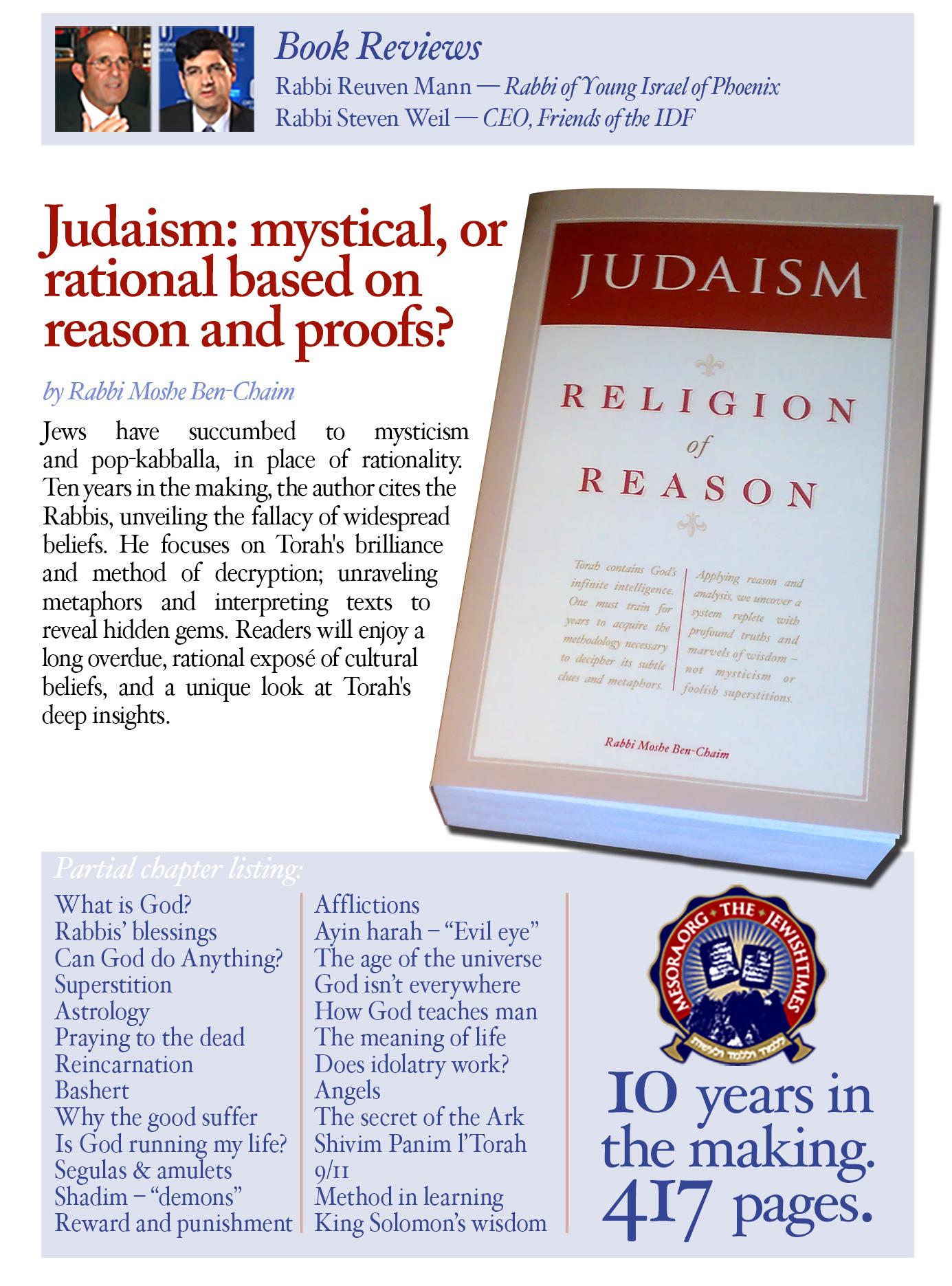


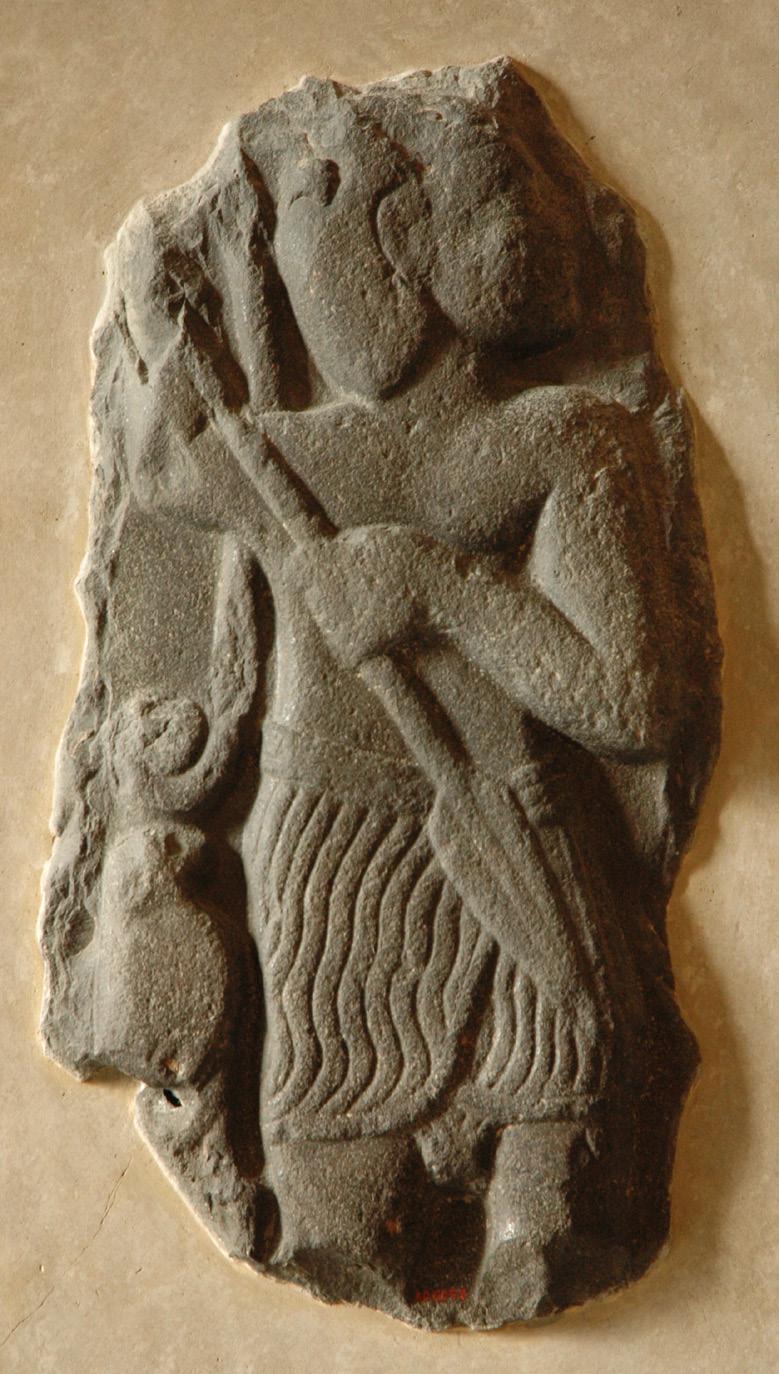
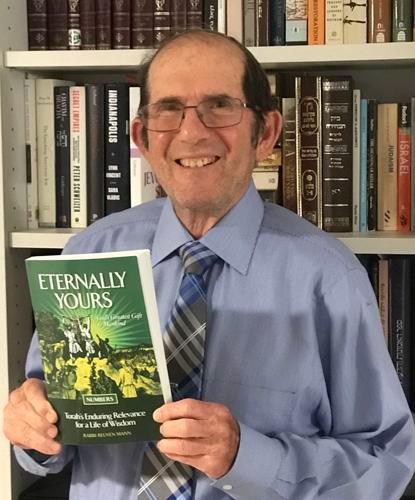

This week’s Parsha, Balak, raises some significant theological issues. Balak was the King of Moab who greatly feared that the Bnei Yisrael (Children of Israel), who were dangerously close to his door, and would attack and completely devastate his country.
[Note: It should be mentioned that his perception was far from reality. Bnei Yisrael had no intention of harming him, which he could have discovered by sending messengers to speak to Moshe. Perhaps he assumed that any people with seemingly supernatural powers would seize the opportunity to conquer a vulnerable neighboring nation. Much of the antisemitic defamation throughout history, has been a case of Gentiles projecting their own dark tendencies onto the Jews.]
Balak in his desperation decided to “go supernatural” and sought the services of the renowned soothsayer, Bilam. He believed that the imprecations launched by Bilam could have a negative impact and seriously weaken Bnei Yisrael. Accordingly, he sent emissaries to the man whom he thought would be willing to help him if he was prepared to be generous with the necessary amenities.
But could Bilam really wreak havoc on the Jews? What exactly is the power of a curse? Can a human by the mere verbalization of certain words effectuate changes in the real world? This is not to diminish the actual human capacity to obtain significant dominion over the forces of nature and thereby effectuate great advancements in the world.
The astounding recent developments in the fields of medicine, communication and travel, to name just a few, brought about by sophisticated technologies are testaments to the boundless potential of human rationality — when man directs his formidable energies to the pursuit of knowledge. All the progress in the forward march of civilization has been brought about by human intelligence, and not necessarily by Divine intervention.
Thus, the question remains, are there individuals who have special and mysterious powers to bring individuals and societies down, just by the force of the incantations they utter? In addressing this complicated issue we cannot avoid the fact that Hashem intervened to prevent Bilam from carrying out Balak’s request. In fact, the Torah testifies that Hashem converted the “curses” of Bilam to blessings. If we maintain that Bilam did not possess supernatural capabilities, then why would it be necessary for G-d to intercede and protect His nation from being harmed by his curses?
As a result of Divine intervention, Bilam’s intended curses were thwarted. But this did not terminate the danger that this devious provocateur represented. He found another way to
effectuate great harm. It was Bilam’s idea that the Moabite women should seduce the men of Bnei Yisrael into sexual relationships that would lead to the worship of Baal Peor. He knew this would elicit Divine punishment from Hashem against His people. Amazingly, his plan was very effective. The men of Bnei Yisrael fell into the trap and worshipped idols, thereby bringing about a severe plague from Hashem in which twenty-four thousand people perished.
While on this subject, the question has been raised that although Hashem acted to prevent Bilam from cursing Bnei Yisrael, He apparently gave him free rein to ensnare them in his devilish plot of seduction for idolatry. Why did Hashem not protect His People from the catastrophic enticements of the Moabite women which resulted in a terrible calamity? In order to resolve this difficulty, we must obtain a clearer understanding of the nature of Bilam’s cursing power. According to Rabbi Israel Chait, Bilam was an unscrupulously formidable individual who had great insight into the weaknesses and defects of human societies. He had a very accurate sense of when a particular group was on the verge of dissolution. He would then utter blatant deprecations against that entity, and when it subsequently fell, people would attribute the phenomenon to his pronouncements. According to this interpretation, it was not Bilam’s curse which caused the calamity. Rather, the disaster was caused by internal corruptions which had nothing to do with him; but which he shrewdly exploited by making it seem as though he was the force behind the devastations which took place. Rabbi Chait explained that Bilam had the ability to penetrate to the deepest levels of the psyche of the Bnei Yisrael. Had he been free to proceed, he would have uncovered and revealed the most dangerous vulnerabilities of our nation. This knowledge would have been a boon to the numerous enemies of Israel throughout the ages, who would have used it to the lethal detriment of the Jewish people. Thus, it was essential for the survival of Bnei Yisrael that the dangerous insights into their weaknesses that Bilam could have uncovered should remain hidden from the purview of their enemies. Therefore, Hashem intervened to prevent Bilam from his destructive intentions and instead forced him to utter the most noble blessings about Bnei Yisrael. However, Hashem took no measures to thwart Bilam from offering his advice on how to seduce the men of Bnei Yisrael into the worship of Baal Peor. I believe that Hashem refrained from interceding in this matter because of the supreme value of free-will. The attempted seduction of the Moabite women constituted a spiritual Nisayon (trial) for the men of Bnei Yisrael, who should have been able to be strong and “just say no.” In general, it is one’s responsibility to conduct oneself properly, and be on guard from situations of moral vulnerability and temptation.

One wonders why so many fell prey to the allurements of the Moabite women. Why were they such easy targets for their sexual enticements; and where were the leaders who were supposed to protect them from these types of ensnarements?
Rabbi Ovadya Seforno speculates that they were overcome by desire and rationalized that they could enjoy conjugal relationships with Gentile women and not be drawn into idolatry. They were, apparently, unaware of the dictum (Ketubot 13b) that Ein Apotropus LaArayot (there is no guardian against sexual immorality, i.e., there is no safeguard against sexual temptation) and they couldn’t imagine how many sins they would be willing to violate in order to secure their forbidden relationships.
The failure of Bnei Yisrael to resist the temptation of the Moabite women is a timeless warning and is applicable to our lives today. We must be very careful in our observance of the Torah and not imagine that some of its prohibitions are not relevant because we are on a very high level. Even exceedingly great men like Shlomo HaMelech (King Solomon) were lax in certain areas of Halacha (Jewish law) where they should have been more cautious. As a result, they succumbed to the very infractions that the restrictions were meant to prevent. This highlights the fact that it is very dangerous for anyone to overestimate their moral level.
Even here in Eretz Yisrael (Land of Israel), the surrounding culture contains many values that are clearly antithetical to genuine Torah ideals. These values are freely expressed through the music, television, movies, and many other art forms that permeate society. Unregulated overexposure to these sources can have a negative impact on one’s outlook on life. One should not take the simplistic attitude that one can indulge in these entertainments and not be negatively affected in terms of their Hashkafat HaChaim (Philosophy of Life).
The greatest protection against alien outlooks is to immerse ourselves in intellectually meaningful and emotionally satisfying study of Torah. One who merits to gain a profound understanding of Torah and a deep enjoyment of its study will recognize that all the alternative attitudes toward life which are promoted by the contemporary culture are empty and unfulfilling.
We pray that Hashem will open our eyes that we may behold the wonders of His Torah (Tehilim 119:18).
Shabbat Shalom. ■


he story of Bilam and his donkey contains unbelievable events and is described in great detail. As the account in Numbers 22:21 goes, Balak was the king of Moav at that time and was faced with the fear of millions of Jews damaging his land by gaining safe passage. To avert this problem, Balak called upon Bilam, a Prophet, and requested that Bilam curse the Jews so that Balak would have ease in attacking them and in driving them out. When Balak sent the first group of messengers to Bilam, Bilam’s reply was that he must consult with God. God’s answer was that Bilam should not curse the Jews for they are blessed. Bilam informed the messengers that he was restrained from going by God’s word. Balak persisted and sent more messengers; now higher in rank. Bilam responded by saying, “Even if my house was filled with silver and gold I couldn’t go.” Nonetheless Bilam requested an answer from God. This time God gave him permission,
What happens next is quite remarkable. Bilam arose early and God was angry that he went. (This was after God gave him permission) God placed an angel in the path to deter him as he was riding on his donkey. Torah states that the donkey saw the angel standing in the path with an outstretched sword in his hand, and that the donkey turned aside and went into the field. Bilam hit the donkey to return it to the path. The angel stood a second time in the vineyard. There was a fence on both sides of the donkey and Bilam. The donkey saw the angel and pressed up against the wall in avoidance, crushing Bilam’s leg. Bilam continued to smite the donkey. The angel passed to a place that was narrow with no room to pass left or right. The donkey saw the angel and crouched down under Bilam and Bilam’s anger burned, smiting the donkey – this time, with a stick. God opened the mouth of the donkey and it said to Bilam, “What have I done that you have smitten me these three times?” Bilam responded, “Because you have



continue, but only that which he tells him may he say. Rashi states that the significance of “three” times represents two things: the three forefathers, and the three Jewish festivals. Ibn Ezra states that once the donkey spoke it died, and that with each successive hitting, Bilam used a stronger object.
Following are questions on this section, including the meaning behind both Rashi’s and Ibn Ezra’s statements:
1) Why didn’t Bilam see the angel of God at first?
2) What’s the significance of the sword?
3) Why, according to Ibn Ezra, did Bilam hit the donkey with a stronger object each time?
4) Why did the donkey die after it spoke?
5) What was the argument of the donkey?
6) Why wasn’t Bilam astounded at the ability of an animal to talk?
7) What does the fence allude to, and why did the path become more and more impossible to traverse with each appearance of the angel?
8) Of what significance is it that Bilam’s leg was crushed?
Maimonides states (Guide for the Perplexed, book II, chap. XLII) that every case in Scripture where we find an angel appearing or talking, the entire account is describing a vision, and not an actual physical event. The event didn’t take place in physical reality, but in a person’s mind. This being the case, this entire story must be interpreted in this light, according to Maimonides. This is a parable for a conflict with which Bilam was struggling.
If we refer to the events leading up to Bilam riding on the donkey, we see that Bilam comes off appearing as a true follower of God. But with a closer look, his true nature is seen. He was asked to curse the Jews. God told him he could not. The fact that Bilam (during the account of the second messengers) requests from God again to know whether he can curse the Jews shows that he wanted to curse them. That’s why he said, “God has restrained me from cursing.” Meaning that he really desired to curse, but God prevented him.
This desire to curse the Jews awoke in Bilam a strong conflict. On the one hand, he desired the destruction of the Jewish people. On the other hand, he knew that God blessed the Jews. Bilam was well aware that God’s establishment

of His Providence over the Jews was due to our forefather’s perfection. Abraham’s self-realization of the absurdity of idolatry, his conclusion of the reality of monotheism and the oneness of God secured this treaty of God’s Providence. With this knowledge, Bilam was greatly troubled as to which path to follow, namely 1) his desire for the destruction of the Jews, or 2) the word of God. This entire account is a parable of his conflict.
Interpreting the elements of this story as representing psychological phenomena, the story’s real meaning can be explained.
Bilam, in great conflict, decides to travel to Balak with the goal of cursing of the Jews. In order to do so, he must suppress his knowledge of God’s command to refrain from cursing them. Riding on his donkey represents the suppression of what his conscience (the donkey) “sees.” “Riding” conveys dominion over another object. Bilam himself (in this vision) represents his evil instincts and thus, isn’t aware of reality (the angel of God). One’s instincts aren’t designed with the ability to judge what is morally good or evil. Instincts are not perceivers: they simply emote. This explains why Bilam couldn’t “see” the angel. Bilam, in this story, represents his instincts—a faculty of man unable to perceive. Instincts have only one function: they guide a person towards instinctual satisfaction. The donkey represents Bilam’s conscience: the part of man that detects good and evil. The angel represents reality, or his intellect: the ability to perceive what is real and true. Bilam’s inability to curse the Jews was so threatening, it was represented by an angel of God wielding a sword, a very terrifying sight. The conscience, represented by the donkey, is designed to perceive and make value judgments. This is its main function.
Now that we understand the main components of the parable, (Bilam, his donkey, and the angel represent respectively the instinctual drive, the conscience, and reality), we must interpret this account accordingly.
Bilam riding on his donkey is interpreted as his evil instincts are riding (suppressing) his conscience. His conscience alone is aware of the reality – “the donkey sees the angel,” but Bilam doesn’t. Whenever the conscience goes
“off of the path,” it means Bilam’s conscience becomes more conscious, making Bilam sense his error. Therefore, Bilam suppresses his conscience – “hitting the donkey.” His conscience slows him down – “crushes his leg” – as he tries to go on his “path.” Bilam’s weapon for suppressing his conscience becomes stronger – “he hits the donkey with a stick.” Then the conscience finally prevails – “the donkey talks.”
The argument of the donkey is that “it’s not me who’s at fault” – meaning that Bilam gains insight (from his “talking conscience”) into his actions and realizes that there’s something behind his suppression of his conscience. At this point, Bilam becomes aware of his denial only through God’s kindness. That’s why God had to open his eyes. The donkey dying after it spoke means that once his conscience made him aware of this information, the conscience ceases to function – termed here as death. It did its job. It “dies.”
Rashi’s statement that the three things shown to Bilam’s donkey alludes to the three forefathers and the three festivals fits in beautifully: the donkey – Bilam’s conscience – was contemplating the primary reason for God’s direct Providence over the Jews, namely the perfection of our forefathers – which entitled the Jewish nation to God’s Providence. Bilam’s conflict was directly caused by these three individuals (Abraham, Isaac and Jacob). Had it not been for them, he might have been able to curse the Jews. That’s why the donkey turned aside (Bilam's conscience experienced greater conflict) when it thought about the forefathers. Abraham, Isaac and Jacob brought about the relationship with God, and now, Bilam desired to curse them! But all curses are from God. We also see why Bilam acted calmly towards a talking animal, as Maimonides states, this was all a vision.
In summary, the entire account of Bilam and his donkey – according to Maimonides – was a vision or conflict, happening only in his mind. In order for the Torah to inform us of this, the Torah writes it as a metaphor so that many ideas and psychological principles can be capsulated into one account. A parable also conceals ideas from those who would shrug at them, if they were written openly. The fact that Bilam did travel to Balak in physical reality is not discounted by this explanation. ■





